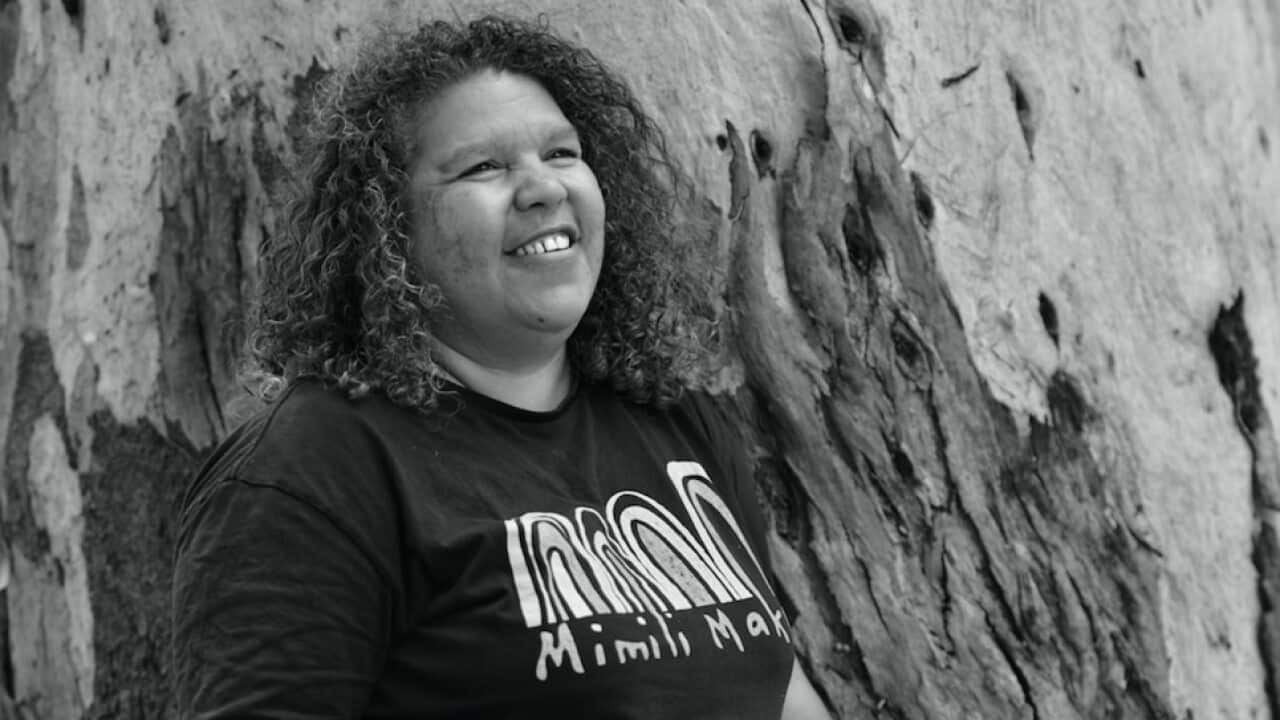Yankunytjatjara Anangu woman Karina Lester was among those who welcomed the landmark Treaty on the Prohibition of Nuclear Weapons which entered into force on January 22, but said more work needs to be done to ensure Australia signs on.
Ms Lester’s father was the late Yami Lester, a staunch anti-nuclear activist blinded during British weapons testing in Maralinga in South Australia in the 1950s - and someone she says was a “big inspiration” for an international Treaty.
Mr Lester’s story was at the core of the Royal Commission into British Nuclear Tests in Australia in the 1980s, helping shed light on the history of tests in Maralinga, Emu Field and the Montebello Islands - and the lifelong health consequences Traditional Owners suffered as a result of the 'black mist'.
“There would be tears of joy, and tears of sadness. He would’ve been more than likely sitting on the veranda back home on Country listening to the ABC radio coverage of this,” she said.
“It’s been powerful from one individual’s story, to really go through those emotions from British nuclear testing, to waste dump campaign fighting, to two Royal Commissions.”

The international Treaty seeks to prohibit the use, development, production, testing, stationing, stockpiling and threat of nuclear weapons, but is yet to be ratified by Australia or the world’s nuclear powers.
Australia is signed on to the earlier Treaty on the Non-Proliferation of Nuclear Weapons, but argues the latest Treaty will be “ineffective in eliminating nuclear weapons”.
Of the 86 signatories to the nuclear ban treaty, 52 have ratified it and made it law in their country.
“None of the countries who have signed have nuclear weapons, so they are making a statement which will increase the stigma around the use of nuclear weapons,” Red Cross International humanitarian law adviser Tara Gutman said.
“This moment is a real cause for celebration… Ever since the bombing of Japan - Hiroshima and Nagasaki 75 years ago - we have recognised that these weapons are completely inhumane, and there is no humanitarian response possible to an incident of nuclear detonation.”
“We have called for these weapons to be outlawed for that long, and now finally this Treaty has come into effect.”
First Nations solidarity
Ms Lester has proudly taken up her father’s fight alongside the International Campaign to Abolish Nuclear Weapons (ICAN), an NGO who were awarded a Nobel Peace Prize in 2017.
She said First Nations solidarity has been instrumental in the push for a nuclear-free world, pointing to the long-term consequences of nuclear testing on Indigenous Homelands in Australia, the Marshall Islands and Polynesia.
“How can you not be moved by these powerful stories of this industry that continues to impact on our Indigenous worlds, you know, Indigenous people across this world?” Ms Lester said.
“Although it’s such a sad and tragic story, it’s comforting to know there are others who have gone through what we’ve gone through and how important it is to continue on the stories and the message.
“And we’re all about to embark on this journey of putting pressure on our governments to remind them to, you know, sign this Treaty.”
Ms Lester said she believed a world with no nuclear weapons was possible in her lifetime, and that her father would be proud when they achieve ‘world peace’.
“He’s been a big part of that legacy. He’s certainly been part of the inspiration of ICAN, and part of the inspiration of this international network," she said.

